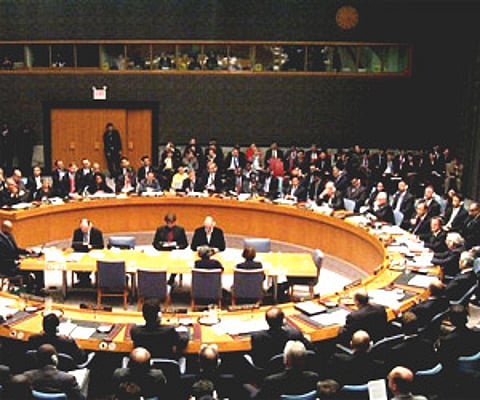

NEW DELHI: History will judge us for our actions -or lack thereof.
Shortly after US Representative to the UN Linda Thomas-Greenfield uttered these words Russia vetoed a United Nation’s Security Council (UNSC) resolution, earlier on Saturday, which deplored their military action in Ukraine. The motion co-written by US and Albania was supported by 11 of the 15 members, whilst India, China and UAE abstained.
Ambassador Greenfield further said, "vote no, or abstain, if you do not upload the Charter and align yourselves with the aggressive and unprovoked actions of Russia. Just as Russia had a choice, so do you."
India abstained from voting even though it is viewed as a friend of the US (as a member of Quad and strong mention in the Indo Pacific Strategy document). India has had a long-standing association with Russia too and is dependent on it for military equipment.
"Dialogue is the only answer to settling differences and disputes, however, daunting that may appear at this moment. It is a matter of regret that the path of diplomacy was given up, we must return to it. For these reasons, India has chosen to abstain on this resolution," according India’s Permanent Representative to the UN, TS Tirumurthi, in India’s Explanation of Vote (EOV).
India has been in touch with all sides urging parties concerned to return to the negotiating table.
The UAE in their EOV said, "The serious developments in Ukraine undermine regional and international peace and security. Throughout the crisis, my country has consistently called for de-escalation and dialogue, we have placed great hope in the various diplomatic intitiatives and channels aimed at resolving the crisis. The result of this vote today was a forgone conclusion, but the avenues for dialogue must remain open more urgently than ever before, and we must pursue them together."
Interestingly, UAE’s Minister of Foreign Affairs Sheikh Abdullah bin Zayed and US Secretary of state Anthony Blinken had a telephonic conversation, a day before the vote, discussing Ukraine. A day prior to that Sheikh Abdullah also emphasised on his countries ties with Russia on phone with this Russian counterpart Sergey Lavrov.
As China-Russia relations are strong at present, China’s abstaining was a given. "I would like to stress that the issue of Ukraine is not something that only emerged today, nor did the current situation occur suddenly overnight. It is the result of interplay of various factors over a long period of time. China advocates the vision of common, comprehensive, cooperative and sustainable security. We call on all parties to immediately come back to the track of diplomatic negotiations and political settlement," said Ambassador Zhang Jun in his EOV.
However, despite this stance, experts feel this may get altered if sanctions begin to impact them.
“China-Russia relations are at the highest level in history, but the two countries are not an alliance,” said Li Xin, an international relations expert at the Shanghai University of Political Science and Law.
Meanwhile, Russia’s Permanent Representative, Vassily Nebenzia, alleged that the draft of the resolution was not balanced as it was not just against Russia but also against Ukraine.
"In particular they left behind the story how the Maidan Junta that rose to power after the unconstitutional coup d’etat in Kiev in 2014 waged war on people of Eastern Ukraine, airdropping bombs on Donetsk and Lugansk. How can we not mention ghastly crimes committed by Ukrainian Nazis in the course of past eight years or protestors against Maidan who were burnt alive in Odessa?" said Ambassador Nebenzia.
Russia has alleged that there is a lot of fake news being circulated with misleading images and footage. They have denied attacking any kindergarten, targeting civilians and have refuted the rumour that radiation at Chernobyl is endangering humans.
"Radiation levels at the Chernobyl NPP are low, there is no threat to population," says Director General of International Atomic Energy Agency (IAEA) Rafael Grossi.
Time will tell, whether the Russian military invasion of Ukraine was a failure of diplomatic efforts or an outcome of rhetoric. The sanctions imposed on Russia will have a cascading effect on many countries. One can only hope that this war comes to an end.